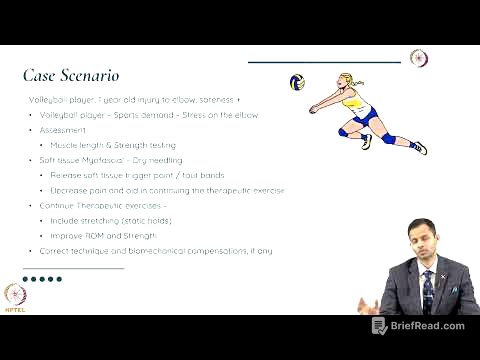TLDR;
This video discusses the importance of responsibility in adolescence as a preparation for adulthood, covering key aspects such as understanding obligations, setting priorities, and managing stress. It highlights the significance of trust, accountability, and the impact of responsible behavior on the community. The video also addresses mental health, offering strategies for coping with stress and promoting psychological well-being.
- Responsibility is crucial for adolescent development and future success.
- Managing stress and making wise decisions are important traits to develop.
- Positive mindset and self-awareness are key to overcoming challenges.
Introduction to Responsibility [1:32]
Taking responsibility is portrayed as a fundamental aspect of daily life, instilled from a young age to prepare individuals for future challenges and obligations. Responsibility is defined as a moral, legal, or mental obligation entrusted to an individual, for which they are held accountable. The key elements of responsibility are trust and accountability. Being responsible is part of growing up, earning the trust of others, and becoming accountable for one's actions.
Being a Responsible Adolescent [3:44]
Being a capable and responsible adolescent involves living harmoniously with others, stepping up to do what needs to be done, and setting priorities. It includes planning, managing time effectively, and honoring commitments, which reduces stress and earns respect. A responsible person positively impacts the community and serves as an example for others, potentially transforming society for the better.
Common Obligations of Adolescents [5:19]
Common obligations expected of adolescents include showing respect for elders, caring for younger siblings, studying diligently, avoiding vices, establishing a good identity, earning trust, distinguishing between good and bad company, and understanding oneself better. Fulfilling these obligations prepares adolescents for their future lives and is a duty supported by society.
Establishing a Sense of Responsibility [6:46]
Establishing responsibility involves several key steps. First, know your priorities by identifying goals and purposes to guide decisions and reduce procrastination. Second, stop making excuses, blaming, and complaining; instead, take responsibility for actions and choices, especially during difficult times like a pandemic, and adopt a victor mentality. Third, be punctual and consistent, viewing punctuality as a sign of respect and trustworthiness. Fourth, learn to organize and manage your life by tracking tasks, using to-do lists, and managing finances through budgeting, saving, and investing. Finally, take responsibility for your thoughts, feelings, and actions, avoiding comparison and communicating openly.
Dealing with Stress [12:03]
Adolescents face various issues that can lead to stress, including challenges with friends, family, academics, relationships, and pressure. Stress is a natural response to feeling threatened or worried and can be positive or negative. Stressors are demanding or threatening events that cause stress, leading to biological and behavioral responses. The video presents three views of stress: as stimulus (demanding events), as response (physiological reactions), and as relational (assessment of resources to meet demands).
Managing Stress and Promoting Mental Health [15:49]
Managing stress, making wise decisions, and being responsible are crucial traits, especially for adolescents. It is important to change one's mindset and view challenges as opportunities. Stress, anxiety, and depression often arise from trying to please others, so it's essential to prioritize self-care and do one's best out of love and service. Difficult situations should be seen as temporary challenges to overcome, fostering growth and mental maturity.









